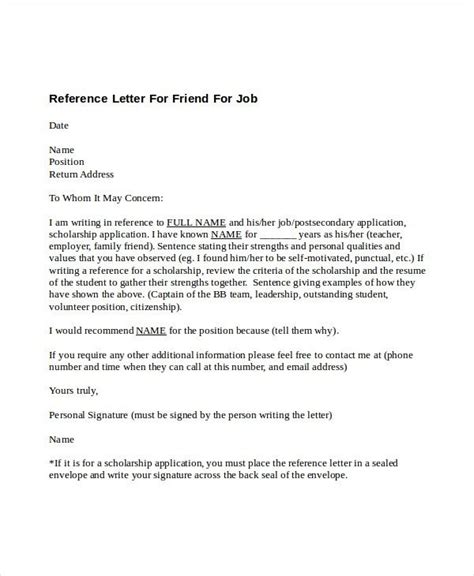Using A Friend As A Reference: How-To Guide

When searching for a new job, having a strong network of contacts can make all the difference. One of the most valuable resources in your network is your friends. By using a friend as a reference, you can increase your chances of landing your dream job. However, using a friend as a reference requires some finesse. In this guide, we will cover all the steps you need to take to use a friend as a reference effectively.
Why Use a Friend as a Reference?
Using a friend as a reference can be a great way to stand out from other job applicants. Here are some reasons why:
- Friends can vouch for your character and work ethic
- Friends can provide a personal recommendation that highlights your strengths
- Friends can give you an edge by providing insider information about the company or industry
How to Choose the Right Friend
Not all friends make good references. Here are some things to consider when choosing a friend to use as a reference:
- Choose a friend who can speak to your professional abilities
- Choose a friend who is respected in their field
- Choose a friend who is reliable and can be reached easily
How to Ask Your Friend to Be a Reference
When asking a friend to be a reference, it’s important to be respectful of their time and make the process as easy as possible. Here are some tips:
- Ask your friend in person or over the phone
- Explain the job you are applying for and why you think you would be a good fit
- Ask if they are comfortable being a reference and if they have the time to do so
- Provide your friend with an updated copy of your resume and any job descriptions
- Let your friend know when they can expect to be contacted by potential employers
How to Prepare Your Friend to Be a Reference
Before your friend speaks to potential employers, it’s important to prepare them for what to expect. Here are some tips:
- Provide your friend with a list of potential questions they may be asked
- Remind your friend of specific projects or accomplishments they can speak to
- Let your friend know about any specific skills or experiences the employer is looking for
- Encourage your friend to be honest and speak from their own experience
How to Follow Up with Your Friend
After your friend has been contacted by potential employers, it’s important to follow up with them and thank them for their help. Here are some tips:
- Send a thank-you note or email expressing your gratitude
- Let your friend know if you landed the job or if you are still in the running
- Keep your friend in the loop about any updates or changes in your job search
Conclusion
Using a friend as a reference can be a valuable tool in your job search. By choosing the right friend, asking them respectfully, and preparing them properly, you can increase your chances of landing your dream job. Remember to follow up with your friend after they have spoken to potential employers and express your gratitude for their help.
FAQs
Can I use a friend as a reference if they don’t work in my field?
It’s best to choose a friend who has some knowledge of your field or industry. However, if you have a friend who can speak to your work ethic and character, they can still be a valuable reference.
What should I do if my friend declines to be a reference?
Respect your friend’s decision and thank them for considering it. It’s better to choose a reference who is willing and able to speak to your professional abilities.
Should I ask my friend to write a letter of recommendation?
It depends on the job you are applying for. Some employers may require letters of recommendation, while others may prefer to speak to references over the phone or via email. It’s best to ask the employer what their preference is.
